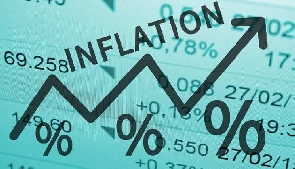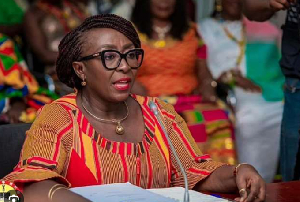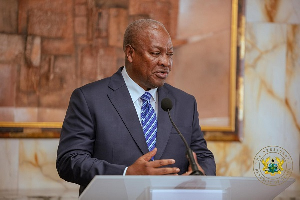Consumer inflation has further increased to 37.2 percent in September 2022 – inching closer to the 40 percent mark last seen in the early 2000s. The annual inflation rate accelerated for the 16th straight month by 3.3 percentage points from 33.9 percent in August 2022, the highest reading since June of 2001 when inflation recorded 36.8 percent. This makes it the highest rate recorded in 243 months, equivalent to 21 years, three months. According to the Ghana Statistical Service (GSS), more than 90 percent of the items measured recorded an increase in price during the period. Five divisions recorded inflation rates higher than the national average of 37.2 percent. The increase in price pressures continues to be fuelled by elevated petroleum and transport costs, as well as higher food costs and a weakening local currency. The Statistical Services observed a wide disparity across the 13 divisions: with housing, water electricity, gas and other fuels leading with 68.8%, followed by furnishings, household equipment and routine household maintenance at 51.5 percent; Transport logged 46.8 percent while personal care, social protection and miscellaneous goods and services logged 42.6 percent; and Food and Non-Alcoholic Beverages 37.8 percent. On year-on-year basis, the difference between food inflation (37.8%) and non-food (36.8%) was 1.0 percentage points. Focusing on food inflation, which was 37.8 percent for September 2022, ten sub-classes recorded higher rates. This was distantly led by water (58.9 percent) followed by milk, other dairy products and eggs (49 percent), and sugar, confectionery and desserts (48 percent). Prices of imported goods accelerated nearly 5 percent faster than domestic items, largely due to a weakening cedi. The market believes that the ongoing crop harvest season bodes well for food prices. However, the recent bout of cedi weakness and the utility tariff increases – effective September 2022 – will wipe out these gains in the inflation basket. Effectively, this points to higher inflation expectations in the near-term. The September 2022 numbers also position inflation nearly 3.72x beyond the Bank of Ghana’s upper band policy target of 10 percent, and much outside the long-maintained medium-term policy range. The Bank of Ghana’s monetary policy committee (MPC) of the has thus far increased the benchmark policy rate by an unprecedented 1,000 basis points (bps) this year to 24.5 percent in response to the ongoing rise in inflation. The markets have expressed the view that a persistent surge of inflation despite aggressive policy rate hikes by the central bank is indicative of a harsher, multi-faceted inflationary environment. “Inflation remains elevated and the balance of risks is on the upside. Although the forecasts are for monthly inflation to slow down, the risks are on the upside – emanating largely from pass-through effects of the currency depreciation, the recent upward adjustment in utility tariffs and rising inflation expectations. The Committee remains committed to re-anchoring inflation expectations and returning to a disinflation path,” Dr. Ernest Addison, Bank of Ghana Governor, said at the press briefing after the 108th Monetary Policy Committee (MPC) meeting. Inflation remains very high – still in line with market expectations. Watch the latest episode of BizTech below:
Business News of Saturday, 15 October 2022
Source: thebftonline.com













